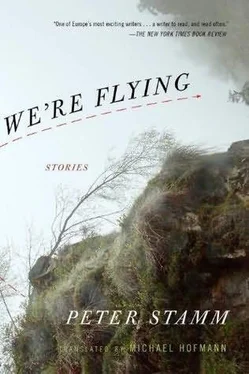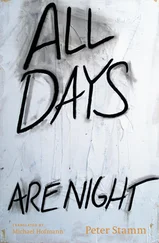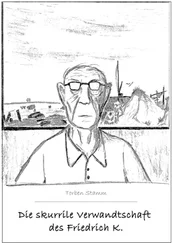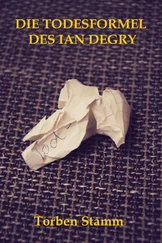Off on holiday, then? asks the man. Hermann mutters something and the man goes on to wish him a good holiday. Same to you, says Hermann, not thinking. The neighbors seem not to have heard the ambulance yesterday.
HE TAKES THE NEXT TRAIN. When the conductor comes along, Hermann asks him where the train is going and buys a ticket to the final destination. Most of the time he just stares out of the window into the dark. Gradually the train fills up, then, after Zurich, empties again, the names of the stops get less familiar. An elderly woman—roughly in Rosmarie’s years—sits across from him in the compartment and stares at him so brazenly, he ends up moving. At the end of three hours the loudspeaker announcer says the train has now reached its final station stop, gare terminus . The announcement is in two languages, as the city where Hermann finds himself is bilingual. He can’t remember having been here before, but perhaps he has. He is on a narrow street that follows a canal. He comes to a park and then a lake. A long pier leads far out into the lake. Hermann walks along the curving, wood-planked jetty, which is lit by little lamps, till he gets to a small triangular concreted area, way out in the lake. He stands there for a long time, the suitcase beside him, like a traveler at a bus stop. It feels as though the old suitcase contains everything that’s left of Rosmarie. The objects have more to do with her than the cold body he saw lying on a metal bed in the hospital a few hours back, reduced to its vital functions. He stoops and picks up the suitcase and walks back down the jetty. Only now does he see, on the side away from the port, a sandbank, with a little fir tree on it, presumably a Christmas tree dumped in the canal after Christmas and now washed up here. He walks through the park, along the canal, and back into the inner city.
The night porter gives Hermann a funny look when he asks for a double room and pays cash, but he asks no questions, only whether he needed a parking spot or a wake-up call. Breakfast was on the sixth floor, from seven o’clock to half past nine. Over the rooftops of the city, he volunteers.
Hermann sits on the bed in his room. He hasn’t even taken his shoes off, he feels a little nauseated by the worn carpet and the coverlet that God knows who has sat on before him. The room is small, and the only light is from a dim economy bulb that isn’t enough to dispel the darkness. There’s a draft, the aluminum windows don’t seal properly. Hermann could have gone to a better hotel, but that didn’t seem appropriate. Church bells ring nearby. He counts the chimes. Ten. Then eleven. He must have dropped off. Only now does it occur to him that no one knows where he is. He has forgotten his medication, and has had nothing to eat since lunchtime. At least he’s filled in the registration form for the porter. If something happened to him, they would be able to trace him. He wonders about calling the hospital and asking about Rosmarie’s condition, but he doesn’t do it. Presumably they don’t release information over the phone anyway. He takes off his shoes but not his socks. He hangs his clothes over the back of a chair. Then he lies down in the bed. The suitcase is on the pillow next to him, in Rosmarie’s place. He leaves the light on.
WHEN HERMANN WAKES UP the next morning, it’s still dark. Before he gets up, he opens the suitcase and takes the things out, one after the other, looking at each item for a long time. He puts on Rosmarie’s cardigan, eats the chocolate bar, reads the blurb on the book jacket. Was there a family argument between the factory owner and his son-in-law? Or did the night watchman of the glassworks pay the price for being such a devoted reader? Hermann turns a few pages and finds an epigraph from Don Giovanni:
What strange fear
Assails my spirits!
Where do they come from
,
Those horrible whirlwinds of flame?
The book is full of Italian words in italics: maestro, canna, servente, l’uomo di notte . Hermann can’t imagine what Rosmarie saw in such nonsense. He puts the book away and takes the underwear out of the suitcase, counts the items, the way you might count days, with a brief lurch of memory.
That morning he washes his hair with Rosmarie’s shampoo, he uses the olive oil soap and cleans his teeth with her toothbrush. He doesn’t eat any breakfast, he feels a little sick from the chocolate. He is terribly thirsty and drinks three glasses of tap water.
On the train he puts the suitcase on the seat next to him. A lot of people get on in Olten. A young man asks Hermann whether the seat next to him is free. Yes, he says, and he puts the suitcase on his knee. Would you like me to put that on the luggage rack for you? asks the young man. No, says Hermann, more roughly than he intended. He clutches the suitcase for the whole journey, as though someone was going to come and try to take it away from him. He takes it with him when he goes to the bathroom.
IT’S THE HOSPITAL that Hermann was born in, where his children were born. At that time there was only the old building. The long brick building next to it must be from the seventies or early eighties. Hermann walks past the porter, he thinks he can remember the way to intensive care, but then he gets lost and needs to ask a nurse for directions. She asks him if he’s feeling all right, and insists on escorting him to the ward. There is no news for him there. The doctor was just in a meeting and would be out in a moment. Did Herr Lehmann want to see his wife? He asks for a glass of water and sits down. A nurse gives him the form he didn’t fill out yesterday. It’s very important.
Hermann sits in the waiting room, going through a brochure on the early detection of heart attacks, and then he looks at some women’s magazines. Franz Beckenbauer is praying for the seriously ill Monica Lierhaus, a TV sports show host Hermann has never heard of. He is not interested in sports, but he reads the article all the same. The woman had a blood clot in her brain, underwent an operation, there were complications, she was put in an artificial coma. Her life is hanging by a thread, the article ends, her closest relatives fear the worst. Why her? it says under the picture of a beautiful young woman with chestnut hair. Hermann feels tears coming on. He clears his throat and tears the page out of the magazine, folds it, and puts it in his pocket. Then he goes with the suitcase into Rosmarie’s room. He looks around, there is no one around. He hides the suitcase under the stand with medical equipment, and, without looking back at Rosmarie, leaves the room.
I should have known
I’d never wear your ring
—REBA MCENTIRE
THE CORKSCREW WAS made in the shape of a girl in a pleated frock of the sort Lara knew from girlhood pictures of her mother, a short light green summer dress. Only the red collar didn’t really fit, it should have been embroidered tulle, and white. Lara could see the pictures, big family get-togethers in a garden in the north of Italy, pictures full of people she didn’t know, even her mother didn’t know some of the names. That man was a neighbor, what was his name again? And aren’t those my mother’s cousin Alberto’s children, Graziella, Alfina, and what was the little one called? Antonio? Tonino? The colors were bleached, which made them somehow more garish. It was as though the pictures had caught the sun, the sun of childhood, pale and ever-present. Thereafter the family had fallen apart, people had gone their separate ways. When Lara had visited Italy with her parents, there hadn’t been any more big reunions, only visits in darkened homes with old people who smelled funny and served dry cookies and big plastic bottles of lukewarm Fanta.
Читать дальше







![Brian Jacques - [Flying Dutchman 01] - Castaways of the Flying Dutchman](/books/128851/brian-jacques-flying-dutchman-01-thumb.webp)




